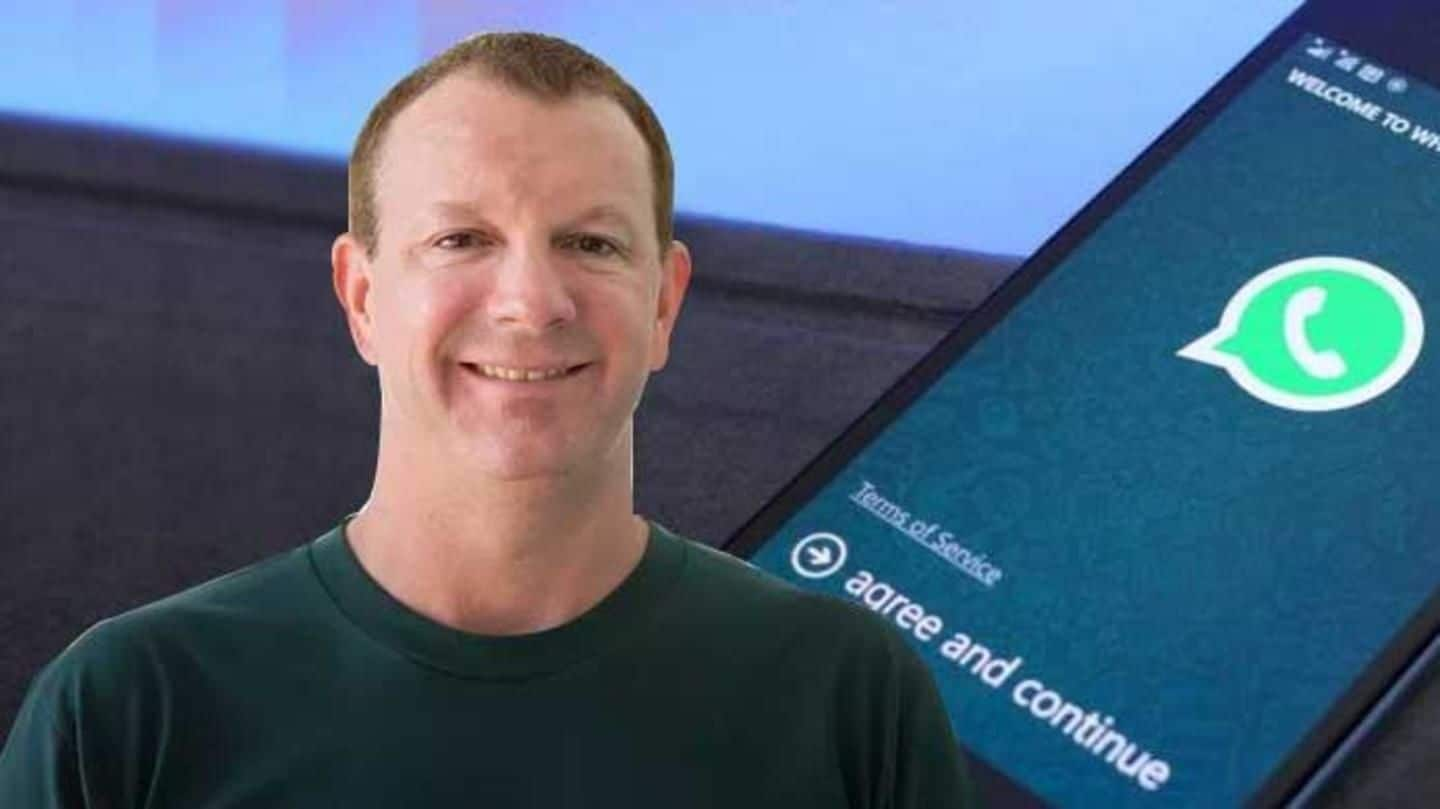
WhatsApp co-founder left $850mn for his morals: Here's why
What's the story
Since WhatsApp co-founder Brian Acton quit Facebook a year ago and then went on to bite the hand that fed him, tweeting, "It is time. #deletefacebook", many questions had remained unanswered. Now, finally, Acton has opened up about his ethical differences with Mark Zuckerberg, his acrimonious departure, and the inside story behind the #deletefacebook tweet. Here's what he said.
Departure
Acton abandoned $850mn in unvested stock when he quit Facebook
In an exclusive interview with Forbes, Acton explained that his moral stand against Facebook's wish to aggressively monetize WhatsApp and use the platform for targeted ads led him to abandon $850mn in unvested stock. Speaking to the publication, Acton explained that he and other co-founder Jan Koum despised advertisements, and had repeatedly pushed alternative models of revenue generation, but to no avail.
Origins
Zuckerberg had made several promises to WhatsApp in 2014
It all started with the stunning $22bn deal through which the Zuckerberg-owned social media giant acquired WhatsApp. Zuckerberg, at the time of the acquisition, had assured Acton and Koum that there would be "no pressure" to monetize WhatsApp for five years! Acton also recalled Zuckerberg being "supportive" about WhatsApp's plans to roll out end-to-end encryption, although it wouldn't allow harvesting of user data.
Approval
Acton was coached to mislead European anti-trust regulators
Yet, the deal first needed to be approved by the infamous European anti-trust regulators, and Acton was coached by Facebook to tell the regulators that it would be difficult to merge data between Facebook and WhatsApp. Acton complied, and the deal was approved. Then, Facebook took an expensive about turn, and started merging the two within 18 months of the deal.
About turn
Facebook made Acton look like a liar
Despite Acton's assurance to European regulators, 18 months later, a new WhatsApp Terms of Service led to the linking of WhatsApp and Facebook accounts wherever possible. Although Facebook had to pay $122mn in fines for giving "incorrect or misleading information", Acton felt betrayed by the move. "It just makes me angry to even relive that," said Acton, recounting that he felt like a liar.
Warning signs
Facebook started seeking "broader rights" over WhatsApp user data
The linking of the two accounts was the crucial first step to Facebook's grand monetization plans. Facebook soon started seeking "broader rights" over WhatsApp user data, and despite push backs from Acton and Koum, a compromise was reached wherein Facebook would link the accounts to provide Facebook friend suggestions, and give its advertisement partners better targets for ads on Facebook.
Respite
Snapchat's popularity gave WhatsApp co-founders some respite
Yet, Facebook's aggressive push for monetization of WhatsApp took a backseat in 2016, when Zuckerberg became increasingly concerned with Snapchat's popularity. Consequently, much of 2016 was spent in aping Snapchat features, with WhatsApp adding a new camera feature that allowed emojis on photos in October 2016, and the Snapchat Stories clone Status feature in February 2017.
Monetization
Facebook rejected Acton's proposed methods of monetization
As 2017 went on, Zuckerberg started growing impatient. Zuckerberg was desperate to show Wall Street continued growth in WhatsApp revenues, and Facebook decided on an ads-based approach to monetize WhatsApp. Acton, being opposed to ads, offered alternative, feasible modes of monetization using high-volume users, but they were rejected on the grounds that they wouldn't make as much money as ads would.
Exit
Acton decided to prioritize his ethics over Facebook's ambition
Acton, an ex-Yahoo employee, had earlier left a lucrative managerial position at the firm owing to his distaste for revenue-generating, page-covering ads that destroy a good product experience. Deciding that he wouldn't prioritize revenue generation at the cost of user experience under his watch, Acton decided to call it quits. When he approached Zuckerberg for his $850mn dues, he was denied citing legal technicalities.
#DeleteFacebook
Acton's frustrations reached a tipping-point with the Cambridge Analytica scandal
Despite his irritation at Facebook, Acton tried to look forward. However, his frustrations about Facebook's 'growth at any cost' approach, even it involved compromising users' privacy, reached a tipping point when the Cambridge Analytica scandal came to light this year. Unable to contain his annoyance, Acton took to Twitter, asking people to delete Facebook. He hasn't tweeted since then.
Looking forward
Acton is trying to put past disappointments behind
Acton, currently worth $3.6bn, still maintains that Facebook wasn't the "bad guy", but were just "very good businesspeople". Since his departure, Acton has turned his attention towards non-profit ventures, and has poured $50mn into WhatsApp-alternative messaging app, Signal, in a bid to create a messaging platform that offers WhatsApp-like features, but has no obligations to ad platforms. He has also donated $1bn to charity.